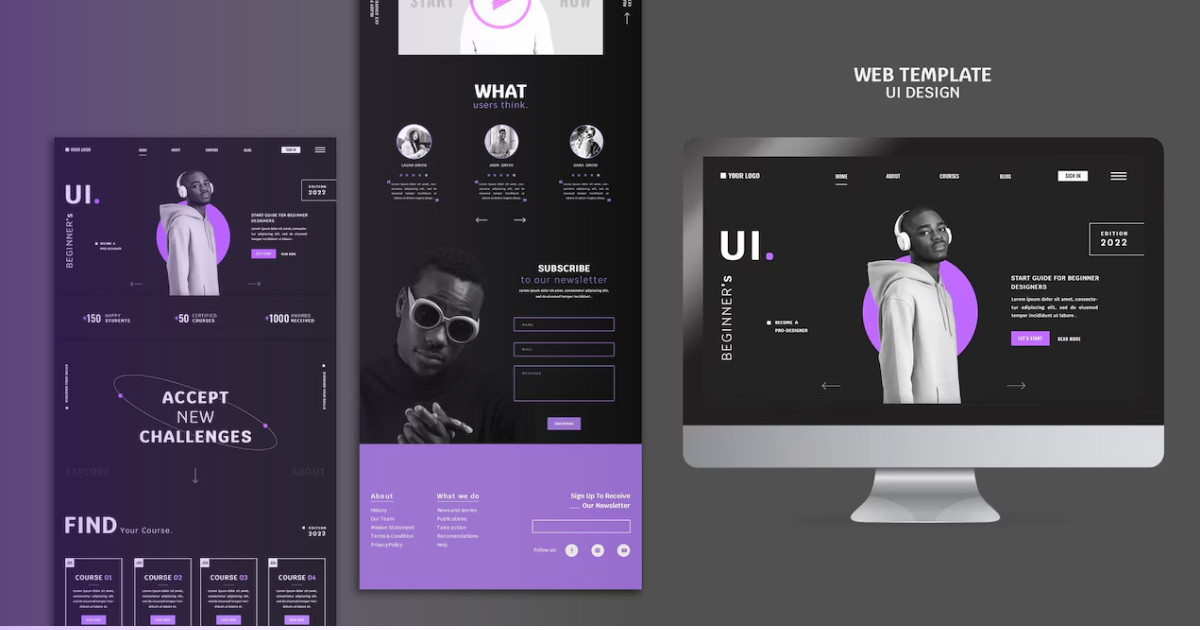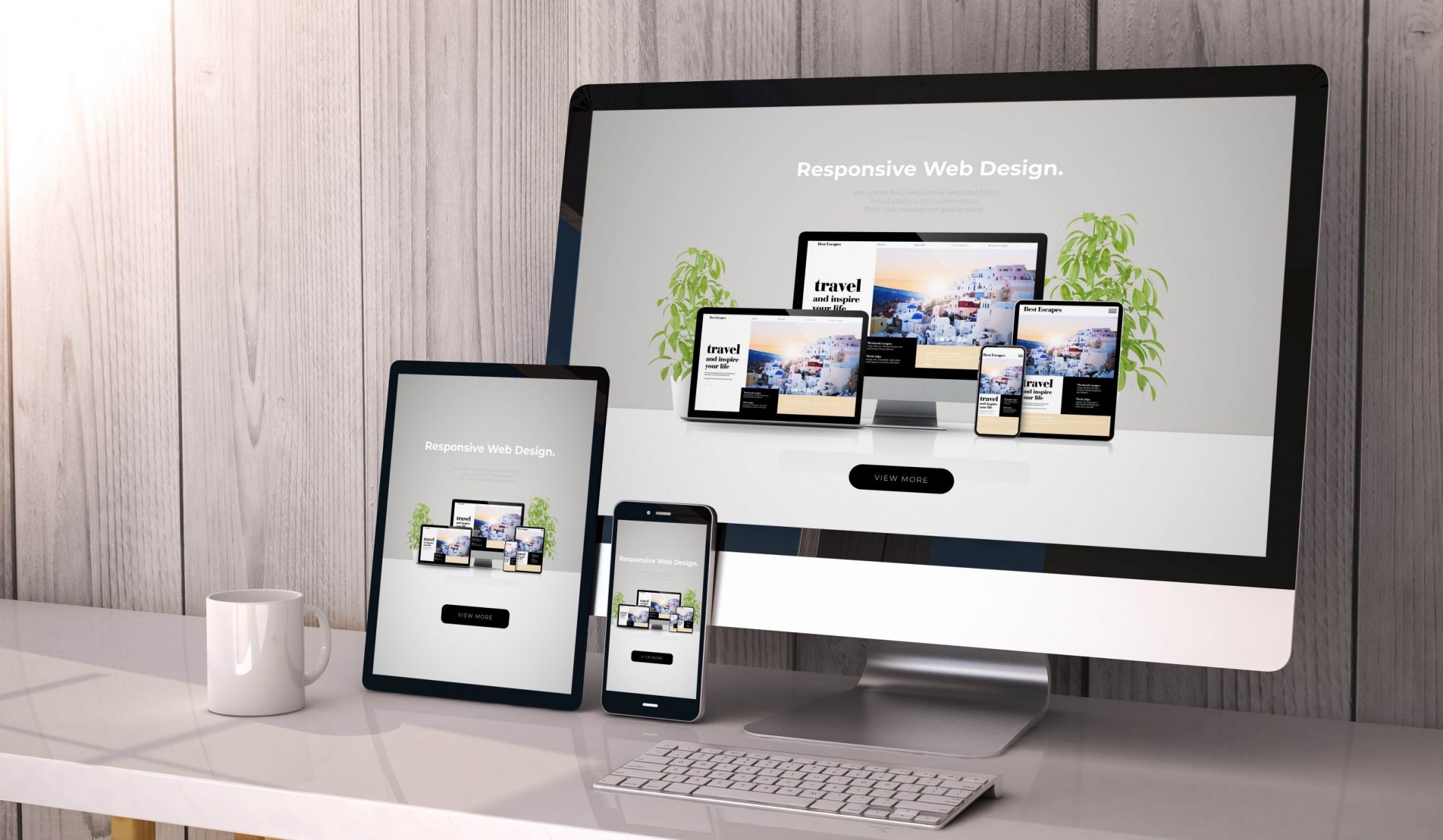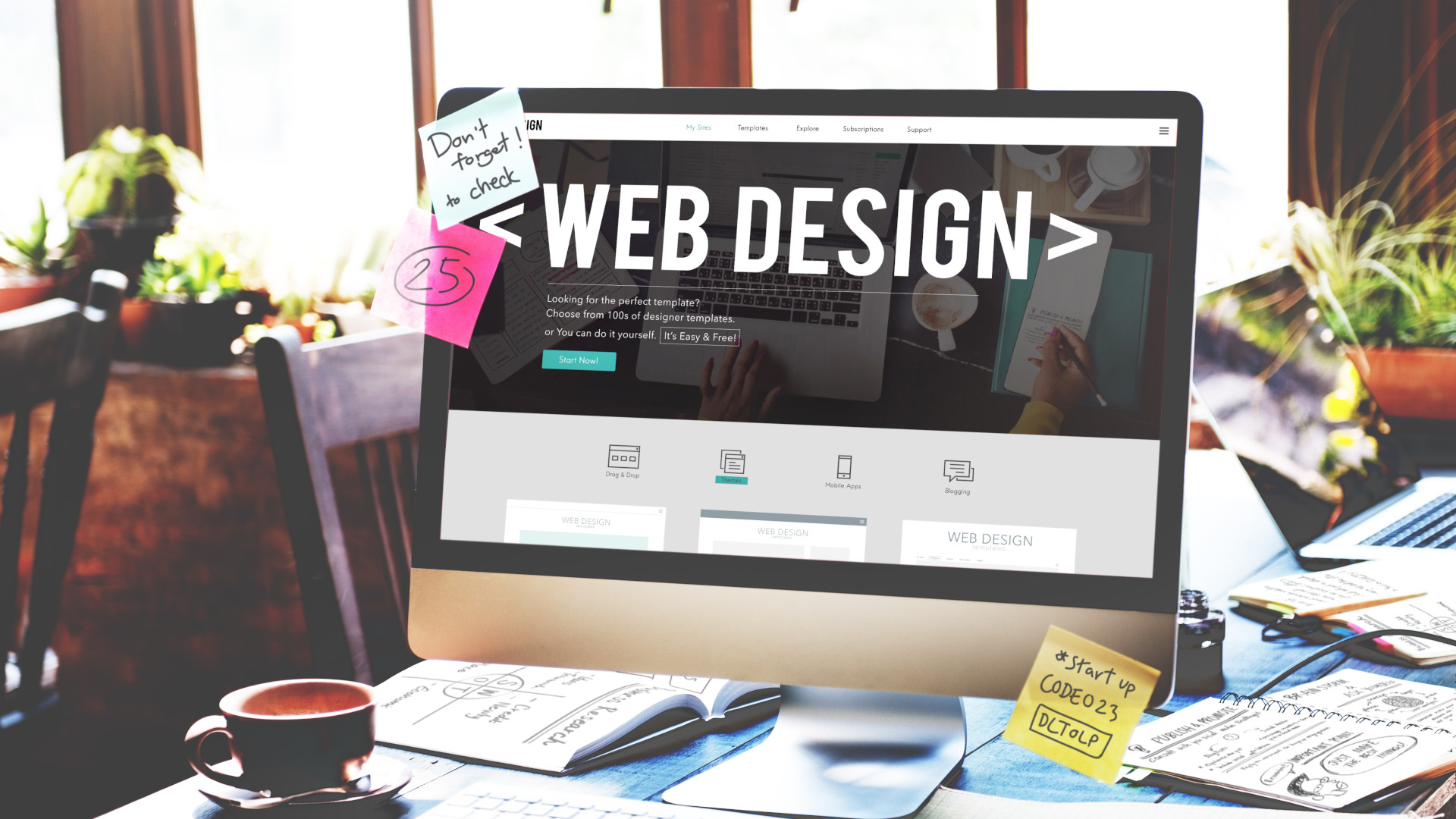Internet Advertising In South Africa: Top Strategies That Drive Traffic
The Vital Elements of Effective Website Design: A Comprehensive Guide
Effective website design includes numerous vital elements that significantly influence user experience. It requires careful factor to consider of factors such as mobile responsiveness, user-friendly navigating, and visual power structure. Each part plays a necessary duty in crafting a website that not only draws in site visitors however additionally retains them. Understanding these fundamental facets is important for organizations intending to enhance their on the internet existence. What really identifies a successful web site from its competitors?
Comprehending User Experience (UX) Design
Customer experience (UX) Design offers as the backbone of efficient website design, focusing on exactly how customers connect with a site. It incorporates different elements, consisting of functionality, accessibility, and overall fulfillment. A successful UX Design begins with user research, identifying the target audience's needs and behaviors. Prototypes and wireframes are then created to visualize the internet site's framework and flow. Internet Advertising In South Africa. Evaluating with genuine users provides beneficial understandings, enabling designers to improve the user interface and enhance navigating. Aesthetic Design aspects, such as typography and color design, boost the total visual while supporting functionality. Eventually, effective UX Design guarantees that users can easily achieve their objectives, cultivating interaction and loyalty. By prioritizing customer experience, web sites can attain greater conversion prices and a favorable reputation
Importance of Mobile Responsiveness
As smart phones progressively control internet use, ensuring mobile responsiveness has actually ended up being vital for effective website design. Internet sites that are not enhanced for mobile can cause an inadequate user experience, causing greater bounce prices and lost possibilities. A mobile-responsive Design allows material to adjust flawlessly to different display dimensions, guaranteeing that individuals can access details easily, no matter the tool they use. Furthermore, search engines prioritize mobile-friendly internet sites in their rankings, making responsiveness an essential element for exposure and website traffic. With an expanding number of individuals accessing the web by means of tablet computers and smart devices, companies must purchase mobile responsiveness to improve individual interaction, improve brand name assumption, and eventually drive conversions. Efficient website design have to prioritize mobile responsiveness to stay affordable in today's digital landscape.
Crafting Intuitive Navigating
Navigation serves as the backbone of any effective site, directing visitors with material effortlessly. An instinctive navigating structure improves customer experience by permitting individuals to locate details quickly and efficiently. Clear labeling of menu things is crucial; it needs to reflect the content accurately, avoiding lingo that might puzzle users. In addition, a sensible power structure is critical, allowing individuals to discern partnerships in between different sections. Uniformity across web pages aids enhance expectations, while breadcrumbs provide context and a sense of instructions. Receptive navigating menus that adjust to different tools better enhance availability. Ultimately, the objective is to produce a smooth journey for site visitors, ensuring they can discover the website without frustration, leading to an extra involved and satisfied target market.
Utilizing Visual Power Structure
Visual power structure plays an important role in internet Design by guiding users' interest and enhancing their experience. Reliable format methods, together with thoughtful options in color and typography, can substantially influence how information is perceived and refined. Recognizing these components is crucial for producing useful and aesthetically appealing sites.
Relevance of Visual Hierarchy
Effective web Design rests on the principle of visual power structure, which overviews customers via content in a logical and user-friendly way. This principle is important for improving individual experience, as it helps prioritize info and guides focus to important aspects. By developing a clear hierarchy, web developers can assure that customers easily recognize essential messages, calls to activity, and navigating alternatives. A well-structured aesthetic pecking order minimizes cognitive lots, enabling customers to refine info successfully. In addition, it fosters engagement by developing an enticing design that welcomes expedition. Inevitably, recognizing the relevance of visual hierarchy is vital for any type of internet designer aiming to create user-friendly and effective sites that effectively communicate their intended messages.

Techniques for Reliable Format
An efficient layout offers as the backbone of any type of effective web Design, allowing customers to effortlessly navigate through content. Reliable strategies include grid systems, which supply an organized structure for straightening elements, ensuring uniformity and balance. Furthermore, making use of whitespace tactically can boost concentrate on vital locations, lowering aesthetic mess and assisting user focus. Focusing on content via dimension and placement even more stresses essential information, while different elements can produce a clear aesthetic power structure. Applying receptive Design strategies assurances layouts adapt effortlessly across tools, keeping use. Including user-friendly navigation help, such as buttons and menus, enhances user experience, making it easier for site visitors to locate pertinent info quickly. Together, these methods develop the foundation of an efficient internet layout.
Shade and Typography Choices
While shade and typography choices may feel like easy Design components, they play a crucial duty in developing aesthetic hierarchy on a website (Web Design Johannesburg). Color can direct users' interest, differentiate sections, and communicate brand identity. By strategically making use of contrasting shades, developers can highlight vital phone calls to activity, guaranteeing they attract attention. Typography, on the various other hand, influences readability and customer involvement. An appropriate font style can share tone and personality, while varying font dimensions and weights can develop a clear framework. As an example, bigger, bolder headings draw attention, while smaller sized body message gives thorough information. Together, reliable shade and typography options create a natural aesthetic experience, leading customers with the content easily and boosting total functionality
Choosing the Right Color Design
How does one pick the ideal shade plan for a web site? Choosing the appropriate color pattern is essential for improving user experience and sharing the brand name's message. Designers should begin by considering the target audience and the feelings that various colors stimulate. As an example, blue typically signifies trust fund, while red can create necessity. It is essential to restrict the combination to a few corresponding shades to maintain visual consistency and prevent frustrating users. Utilizing tools like color wheel applications can assist in selecting shades that work well with each other. Additionally, developers need to assure that there suffices contrast in between text and background shades for readability. Ultimately, a well-thought-out color design can considerably influence an internet site's effectiveness and individual involvement.
Including Engaging Material

Engaging web content is crucial for keeping the attention and capturing of site site visitors. It functions as a bridge in between the site's Design and the individual's experience, cultivating deeper links. Reliable content usually includes a mix of interesting short articles, bewitching visuals, and interactive components that urge individual involvement. By making use of narration strategies, sites can evoke feelings, making the product much more memorable and relatable. Furthermore, integrating user-generated material, such as testimonials or testimonials, enhances credibility and develops trust with the audience. Clear calls-to-action overview users toward preferred outcomes, guaranteeing they remain engaged. In general, a strategic strategy to content growth not just enhances individual experience but also drives conversions, making it a vital facet of effective web Design.
Optimizing for Speed and Efficiency
Optimizing for speed and efficiency is necessary for enhancing individual experience on a website. Methods such as photo compression, minifying CSS and JavaScript, and leveraging web browser caching can substantially reduce filling times - Website Design Klerksdorp. These methods not just enhance efficiency however likewise add to much better online search engine positions
Picture Compression Strategies

Minifying CSS and JavaScript
Numerous internet developers focus on image optimization, minifying CSS and JavaScript is equally crucial for improving internet site speed and performance. Minification entails removing unneeded personalities from code, such as whitespace, comments, and formatting, without influencing its functionality. This process causes smaller sized file dimensions, which leads to quicker loading times and enhanced customer experience. By reducing the amount of information moved between the server and the customer, minification aids reduce transmission capacity usage and enhances general website performance. Additionally, internet search engine prefer faster web sites, which can improve search rankings. Applying devices and automated processes for minifying these manuscripts can simplify internet development and maintenance, ensuring that performance continues to be a top priority throughout the lifecycle of a web site.
Leveraging Web Browser Caching
Leveraging internet browser caching greatly boosts site rate and performance by keeping regularly accessed resources locally on a user's gadget. This method decreases the demand for duplicated demands to the web server, substantially lowering filling times for returning visitors. By utilizing HTTP headers, web programmers can define caching regulations for various sources, such as scripts, images, and stylesheets. Appropriately applied caching approaches permit individuals to experience faster page loads, causing boosted customer complete satisfaction and involvement. In addition, search engines prefer internet sites with maximized performance, potentially enhancing search rankings. Routinely assessing and managing cache setups guarantees that customers obtain updated content while still taking advantage of the effectiveness of cached resources. In verdict, efficient browser caching is an important part of enhancing internet efficiency.
Frequently Asked Concerns
Exactly how Do I Select the Right Website Design Tools?

Choosing the ideal internet Design tools includes reviewing task requirements, recognizing user requirements, and reviewing different software features. Compatibility, convenience of usage, and neighborhood assistance are also crucial aspects to think about for reliable Design results.
What Prevail Website Design Errors to Avoid?
Usual internet Design mistakes to prevent include messy designs, inadequate navigation, poor mobile responsiveness, slow packing times, and disregarding user experience. Reliable styles prioritize accessibility, simplicity, and capability to engage users and improve satisfaction.
Exactly How Can I Gauge My Website's Success?
To measure a web site's success, one might assess metrics such as traffic, conversion prices, customer engagement, and bounce rates. Making use of tools like Google Analytics can offer valuable insights for recurring optimization and enhancement methods.
What Function Does SEO Play in Internet Design?
SEO substantially affects web Design by making certain that sites are structured for search engine visibility. This includes enhancing site rate, mobile responsiveness, and material quality, inevitably improving user experience and driving natural web traffic.
How Typically Should I Update My Website Design?
The frequency of internet site Design updates depends upon industry fads, individual comments, and technological innovations. Commonly, a refresh every 2-3 years is a good idea, making certain the website stays appropriate and aligned with current standards and user assumptions.
Customer experience (UX) Design offers as the backbone of reliable internet Design, focusing on exactly how users engage with a site. With an expanding number of users accessing the web via tablet computers and smartphones, organizations need to invest in mobile responsiveness to boost customer interaction, improve brand understanding, and eventually drive conversions. An user-friendly navigating structure improves individual experience by permitting users to locate information swiftly and efficiently. Correctly applied caching methods permit customers to experience faster web page loads, resulting in boosted user contentment and engagement. The frequency of web site Design updates depends on sector patterns, individual comments, and technological improvements.